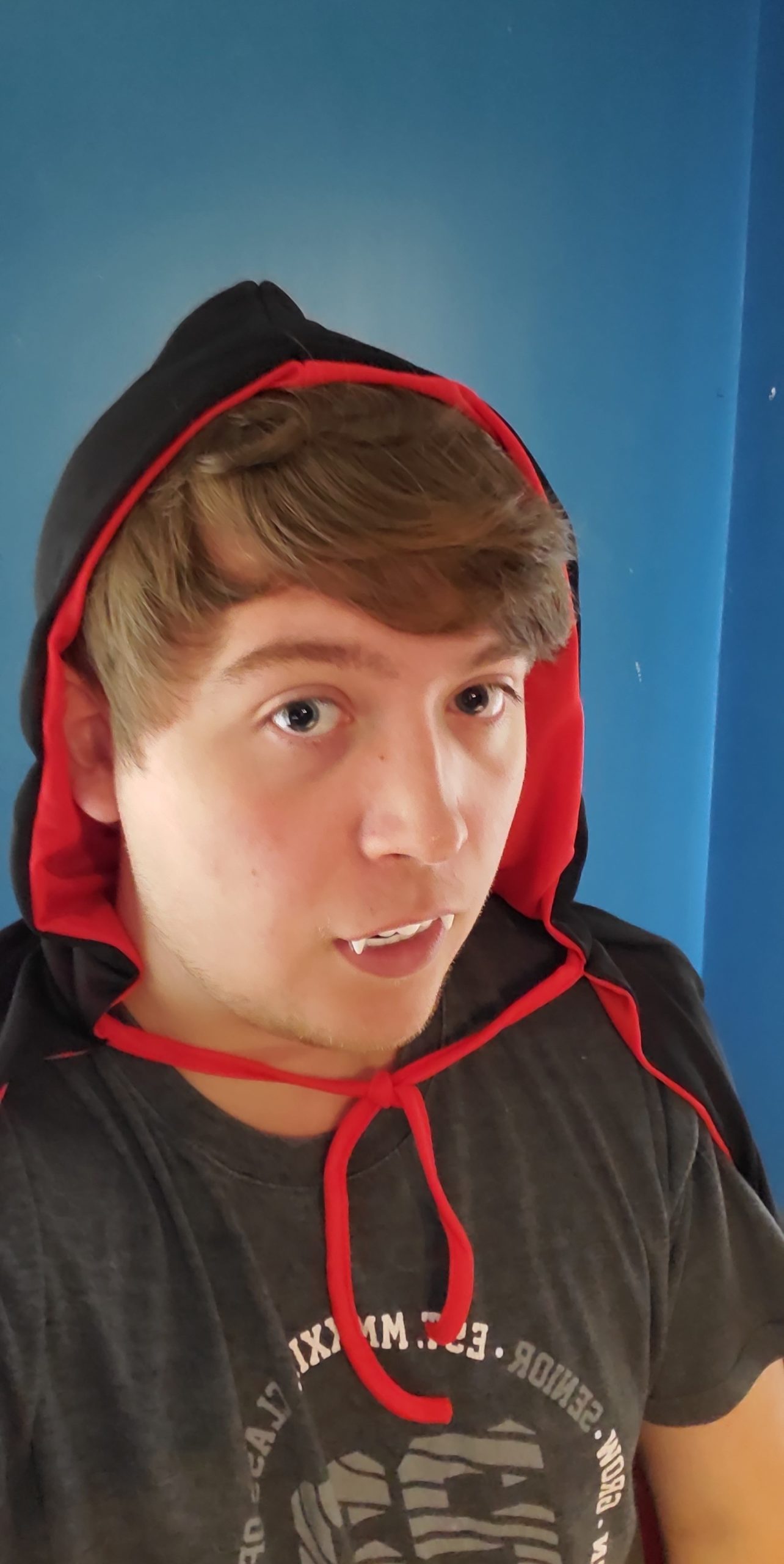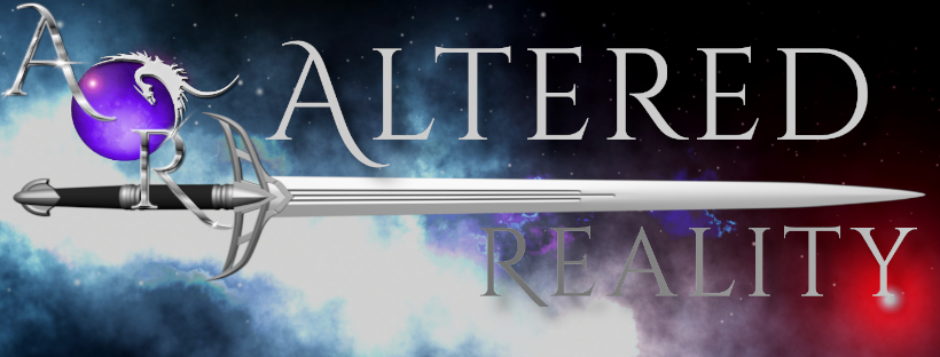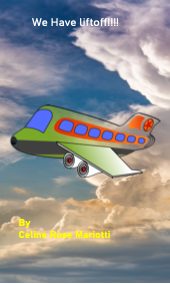The early morning in Eskcot was synonymous with the rise of a pale and flickering sun, hidden behind dew-strewn hills and seaside foamy rocks. The light of the day was hazy, burning away the last fleeing vestiges of twilight’s foggy phantasms. As the haze of night evaporated, the sun would establish itself, and humidity would retreat for the duration of the upcoming afternoon. Afternoon was still many hours away, however, and fog clung to the corners and crevices of Eskcot like long, slender fingers.
The buildings that made up the village of Eskcot clung on a variety of rocks and inlets, clustered together in a way that was more reminiscent of mushrooms than of the Aichedian definition of order. The platoons of soldiers who passed through Eskcot muttered about it being a grunthund, a “nothing place,” still rife with the natural arcanery of Pirith despite the frequent administrations of Aichedian normality.
Other towns like Eskcot, which still held an ember of the ancient bond with the natural world that had allowed relative peace for the humans of Pirith, had long since been rendered militant and “normal” to the eyes of Aichedian governors. They had pushed the Wyld out of the stones and the timbers, out onto the roads and the paths. Eventually, those paths were lit with bright torches and Aichedian seals of protection, and the creatures of the Wyld were forced to remain deep within the ancient forests of the island, lest they be hunted to extinction. Yet, ever more the forests themselves were encroached upon, with hungry Aichedian industry expanding simple towns into sprawling cities.
Ever more buildings.
Ever more fires.
Ever higher walls.
They had spared Eskcot this fate for a variety of reasons, at least for now. The village was isolated at the north of the island, far from the rapid industrialization to be found across the southern cities of Pirith. And, more to the point, strange things happened in Eskcot. Strange, unnatural things that were the stuff of Aichedian campfire stories were frequent happenings for soldiers who wandered too far from the safety of their dockside lodgings and platoons.
Whispers from the sea.
Pale anthropoid bodies, with eyes as black as shadow.
Vast starless skies, a flickering void of nothing.
The only reason that the Aichedians bothered with sending platoons through Eskcot was because it was the best natural port for the entire north side of the island, and it saved more time than sending them through the rugged, Wyld interior of deep forest. Entire shipments and platoons got lost in the depths of Pirith, and not all of them came out of the other side. So, there was no shortage of agitated Aichedian soldiers frequenting dockside bars and inns during the summer and autumn.
This morning in particular, no rain had fallen. Not yet, anyway. It was not the “rainy season,” but in Pirith, the Aichedians joked with each other, “every season is a rainy one!” A dry summer day was still relatively rare, and the weather had every opportunity to turn bad still. Townsfolk were up even earlier than they might otherwise be, out and around the market with the screeches, laughs, and mumbles that came with human habitation.
The air was tagged with the ever-present odor of salt, which would eventually be accompanied by the scent of rising dough from half a dozen bakers across the market. Quiet conversations grew rampant and lively as the townsfolk of Eskcot rose to face the day.
It was, for all intents and purposes, a normal summer morning in Eskcot.
That changed with the arrival of the galleon.
Clad in Aichedian colors, it plowed through the waves as an indomitable force. It cut through the fog as easily as it did the water, a massive vessel that loomed as large as the inlet that most of Eskcot had been built around. Many smaller vessels were bustled out of the way by disgruntled anglers, with all the boats now crowded into a space around a third as large as what they had occupied earlier.
The galleon plowed forward, irreverent towards the smaller vessels it almost smashed into. The sails had long since been pulled up, and from a short distance across the water, the dock workers and anglers could hear orders being shouted in a severe Aichedian accent.
“If we so much as brush our hull against that dock, I will flay each of you myself. Now, take us in, and do it right!” barked an androgynous figure cloaked from head to toe in the garb of an Aichedian commodore.
As the vessel neared, the words Faebane’s Wrath scrawled in intricate and crimson lettering on the side. The ship lurched as it slowed, planks twisting and groaning from the massive weight of the vessel as it slouched into the dock. The top deck exhibited a flurry of movement, a mixture of raggedly dressed sailors and finely decorated Aichedian soldiers. Ropes were being thrown onto the wood of the dock, and orders were being barked to deckhands who were cooperating with no shortage of disdainful grumbling. Their mild protests grew into a terse silence as the multitude of well-armed soldiers disembarked, forming orderly platoon lines upon the haphazard and salt-spoiled planks of the dock.
Soon, the Faebane’s Wrath settled into the subtle and expected motions of a docked vessel, ropes tensing and flexing with the rise and fall of the morning waves. The sailors from the vessel, with some help from the deckhands, unloaded a vast supply of crates from the hold of the ship. Many were barrels of drinking water or containers of food, intended for consumption by the two platoons that had come into Eskcot on the Faebane’s Wrath. Even though they were now on land, many Aichedians resisted the notion of eating or drinking items from Eskcot itself, lest they be cursed with Wyld arcanery. Though, more often than not, the “arcanery” in question was a mild case of indigestion.
Crates and barrels were moved one at a time, each taken by a broad-shouldered deckhand or sailor and brought down the gangplank. It took ten minutes for most of the crates to be unloaded onto the dock, during which the soldiers were growing impatient in their orderly formation.
One crate, one of the very last to be hauled off of the ship, was unlike the others. Reinforced with dark and reflective metallic alloys, it had been carved over in a complex net of Aichedian runic seals. A presence, like a metaphysical grease, seeped from the crate, generating an atmosphere of dingy neglect. A single part of the metal had been cracked, revealing only darkness inside. Shadow oozed from it, composed of an unnatural viscosity.
From within came a deep and smooth voice, resulting in a quiet mumble too low to be overheard by the sailors. “Come on… Almost there… just gotta time this right,” it grumbled in a voice like the blowing of the wind.
The crate was picked up by one exhausted sailor, with dark rings of exhaustion under her eyes. She hefted the crate into her arms with a grunt of exertion, plodding her way up and out of the ship. She stepped unsteadily, with only the experience of years on the sea keeping her steady with each lurch of the planks underfoot.
When the sailor had made it about halfway down the gangplank, the voice from within the box called out again, now loud enough to be heard. “Hey, friend, you got a second?”
The sailor started, glancing blearily down at the box she carried. She shook it, feeling the heavy yet empty sensation of the crates interior. “Wha’ in the…?” She shook her head, muttering to herself, “Musta been hearin’ things.”
While she had paused on the gangplank, however, a small tendril of shadow had emerged from the miniscule crack in the crate’s metal. It twisted around through the air like a barely visible plant growth, almost invisible in the early morning haze. It grew downwards, wrapping around the woman’s ankle.
As soon as the sailor went to walk again, the shadow hardened with a tiny implosion of air into a solidified, crystalline state of darkness, like a black ice sculpture of tendril.
The solidified tendril of shadow pulled at the exact moment that the leg went to walk, drawing tight around the leg and pulling the exhausted soldier off balance. As she went tumbling to the dock below, the box went flying from her hands and crashing further down the dock.
The many movements and conversations of the dock grew silent as the crate bounced and cracked in half a dozen places as it came to a stop, many watching the grumbling sailor who was nursing her wounds.
The crate, despite the fact that it had come to a stop, continued to crack open. Like fragmenting ice, or perhaps a hatching egg, the metal twisted and the wood snapped. In a matter of seconds, the remains of the crate exploded outward, and the unfolding darkness within took the shape of a man.
The figure had eyes of red, the only color that wasn’t an encapsulating, smokey darkness that comprised the man’s body. His lower half was smoke, and it was only in the torso, arms, and head that the traditional features of a body emerged. His physique was muscular and androgynous, a creature of Wyld arcanery that twisted the remains of the morning’s fog into a twilight haze of shadow. Bolts of silent gray energy emanated from within his core, shooting out at random angles and intervals like metaphysical lightning.
“That’s… much better. Been looking forward to a jailbreak,” came the same voice from before, now echoing across the entire dock of shocked workers and soldiers. It was a voice of the wind, and the sea, and the grass, and the trees. It was human and inhuman, masculine and androgynous, it was Wyld and it was Fae.
Many of the soldiers broke formation, drawing swords and crossbows with cries of alarm. The sailors and dock workers responded with a silent withdrawal. Many of them were natives of Pirith, and knew that there was little sense in antagonizing a Cimmerian.
Soon, crossbow bolts were shooting through the Cimmerian, to little effect. Then swords, which cut through the darkness as if it weren’t there. The creature ignored both onslaughts, stretching its arms and glancing around the dock with a self-satisfied expression. A few tendrils of solidified shadow batted at the more aggressive humans, and the two platoons withdrew to what they deemed a safe distance on the far side of the dock.
The Cimmerian floated down the dock, ignoring the humans that were in his way as if they were not there at all. He was almost up and out of the dock before the Commodore from before stepped in front of him, hood pulled back to reveal the visage of an angry Aichedian woman. She didn’t look the slightest bit frightened, unlike the two platoons under her. She threw her cloak off and pulled up the sleeves of her robe-like uniform.
“Excuse me, Commodore Kotia,” came the slick voice of darkness from within the tumultuous chest of the Cimmerian, “but I believe you’re in my way…” the Cimmerian said, moving to glide through the woman.
The woman did not respond, instead flexing her fingers and beginning to shout. “Grokthiel! Grokthiel!”
At once, her arms, and then her extremities, came to light with a bright white light. It burned through the air with all of the heat and intensity of the sun, a twisting jet of energy that bled from the woman’s now enchanted digits.
“Jack of Night. Class-C Demon of the Wyld. You will submit to the divine protection of the Aichedian Consortium!” The woman howled in the same severe voice that had, half an hour ago, been delivering orders to rowers on board the ship.
Rods of pure white energy shot out in an organized lattice from the woman’s two outstretched arms, burning away the fog of the morning and the encroaching darkness of the Cimmerian named Jack.
Jack howled, his form diminishing as white light surrounded him. The brightness of it burned away at the smokey darkness as if it were kindling. He withdrew, but there was no escape from the growing, mathematically perfect white lattice-tree of the Aichedian Thaumaturgy. His form was soon wrapped in something approximating a cage, suspended a foot in the air and shrinking as it forced the Cimmerian into smaller and smaller dimensions to avoid getting burnt. The humanoid figure was now once again swirling smoke, no longer able to fully manifest.
The disembodied voice of Jack swore in a language no mortal could speak, the shriek of the sea and the grumble of the land. When he spoke, he sounded weak, more like a whisper than the angry shout he intended it to be. “You… have no right…”
“I have every right,” came the stern consternation of the Commodore. “Your existence violates two public safety laws and three land treaties regarding the handling of Pirith’s arcanery. Your escape attempt brings your total charges up to sixteen. Further attempts to communicate or escape will lead to harsher treatment in the future.” She smiled at the smudged, box-like shape of Jack. “Remember why we brought you here. To help us, Jack. Things would be much better for you if you did.”
Jack howled within a whisper, shadow-blackness now a hazy gray. He tried to speak, but all he could manage was a mangled mumble of unclear syllables.
“Now, then…” the Commodore said, beginning to walk towards the captured Jack with bright hands.
Just as she went to take a step, however, she stumbled forward. A passing handcart driver had brushed against her, and she hadn’t noticed his approach with her focus on Jack. She almost fell over, taking a moment to regain her balance. She turned to glare at the driver and opened her mouth as if to reprimand him.
The man was an honest-looking, muscular man of around twenty. He shrugged his shoulders to Commodore Kotia. “Apologies, miss. Didn’t mean to brush you, like that.”
At that moment, the latticework of Kotia’s Thaumaturgy failed for a few seconds. The reduced and transparent form of Jack slunk to the floor of the dock. In the light of day and in his reduced form, he was barely visible.
The Commodore quickly turned to correct her mistake, and the latticework re-established itself. Yet, Jack was nowhere to be seen. “Damn it all!” the Commodore shouted, glancing around the dock. She started pointing at various sailors and soldiers. “You! You! Did any of you see him? Where did he go?”
In the chaos of the rapid footsteps and yelling of the Commodore, nobody saw the gray, hazy form of Jack slide between her feet, and up the wheel of the handcart that the Eskcot townsman was pulling.
It took a monumental effort out of the weakened Cimmerian, but he slunk his smokey form into a topless clay jar of what looked like barley grain. The shadow let out a weak chuckle as the handcart resumed its journey past the dock and into the streets of Eskcot, leaving the incensed Commodore far behind.
“Try again, Commodore… You’ll have to try again,” he mumbled out loud, barely more than a haze of darkness atop some jostled grains.
Continue to Part 2
About the Author
 Mason Kennedy is a writer from south-eastern Indiana, with a love of RPGs, Science Fiction, mythology, and vampires. Twitter, @ArchipelegoTV. Tumblr, at archipelego
Mason Kennedy is a writer from south-eastern Indiana, with a love of RPGs, Science Fiction, mythology, and vampires. Twitter, @ArchipelegoTV. Tumblr, at archipelego
![]()






